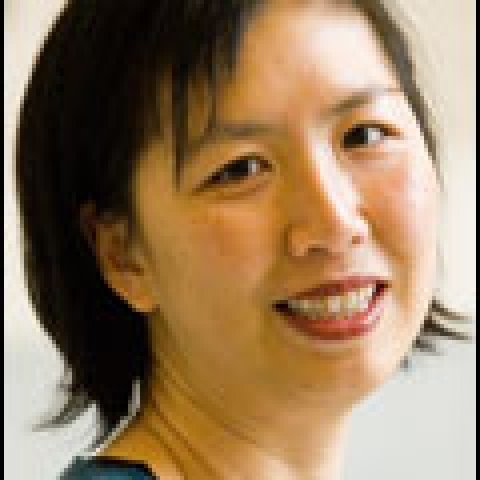Rita Chin
Former Fellow
Professional Affiliation
Assistant Professor of History, University of Michigan
Expert Bio
Trained in European intellectual and cultural history, I wrote my first book on guest workers who were recruited to the Federal Republic of Germany in the aftermath of World War II. While I wanted to understand the implications of minority intellectual interventions for German culture, my ultimate goal was to illuminate broader historical changes in German public discourse and values triggered by the presence of millions of de facto immigrants. I argue, in short, that the process of debating the impacts of postwar labor migration reshaped the very boundaries of German identity, culture, and nation.At the same time, my interest in the massive influx of foreigners (especially Muslim Turks) into the Federal Republic pushed me to take seriously questions of race and racism in the German context. I am currently finishing a co-edited volume which attempts to answer the question: what happened to ideas about race in Germany after Hitler? It suggests that racial discourse in West Germany was displaced in two major ways. In the immediate postwar period, public debate about race shifted away from Jews to the offspring of German women and African-American GIs. While anti-Semitism by no means vanished from German life, West German social policy stopped defining such differences as racial and adopted a black/white conception of racial difference introduced by U.S. occupying forces. Second, the book claims that the discredited term "race" gradually disappeared from public discourse and was replaced by concept of "foreigner." This concept was initially applied to Jewish survivors of the Holocaust who came to be seen as intrusive foreigners claiming scarce resources. But it also became the label of choice for guest workers recruited to fuel the economic miracle. While the term served to mark the ethnic and cultural differences of these national groups without explicitly referring to race, the category of foreigner itself became increasingly racialized as Germans began to acknowledge that temporary labor recruitment had become de facto immigration.For my current project at the Wilson Center, I will continue to examine the social,cultural, and ideological impacts of migration in the comparative context of the New Europe. My decision to focus on questions of difference among the Western European Left emerged as a response to the current scholarly tendency to emphasize far Right responses to immigration. This work has explicated the ideological and political patterns of xenophobia as well as the day-to-day forms of subjugation encountered by immigrants. But we know relatively little about the complexity of response by left-leaning constituencies. My study investigates the engagements between leftist groups and immigrants in Germany, Britain, and France, focusing on several key questions: How have leftist understandings of difference converged with or challenged conservative rearticulations of race after the Holocaust? What do the shifting labels for immigrants—from "foreigners," to national group, and more recently to religious affiliation (e.g. Muslims)—say about changing perceptions of minorities in Europe? How have self-identified leftists prioritized competing liberal principles in the face of immigrant values and concerns? Ultimately, the current tendency to essentialize religious and cultural difference requires a rethinking of simple binary distinctions between "right" and "left" responses.
Education
B.A.(1990) History, University of Washington; M.A.(1992) History, University of Washington; Ph.D.(1999) History, University of California at Berkeley
Subjects
France,Gender Issues,Germany,Immigration,West Europe
Experience
- Assistant Professor of History, University of Michigan, 2003-present
- Assistant Professor of History, Oberlin College, 1999-2003
Expertise
Modern European History, post-1945 period, Germany, comparative migrations, race and ethnicity, transnationalism
Wilson Center Project
"The European Left and Postwar Immigration"
Project Summary
This project examines how leftist groups in Germany, Britain, and France grappled with the questions of racial/ethnic difference raised by the arrival of millions of new immigrants after 1945. Focusing on established political parties and grassroots organizations, it explores how the Western European Left's understanding of "difference" has varied across location and time. It also considers specific issues that pushed leftist and immigrant groups to view each other as sometimes crucial, sometimes untenable coalition partners. The goal is to use this history to understand how Western Europeans across the political spectrum have come to see immigrants (especially those of Muslim faith) as a threat to liberal democracy.
Major Publications
- The Guest Worker Question in Postwar Germany (New York & Cambridge: Cambridge University Press, 2007).
- Co-editor with Heide Fehrenbach, After the Racial State: Difference and Democracy in Postfascist Germany (Ann Arbor: University of Michigan Press, forthcoming).
- "Imagining a German Multiculturalism: Aras Ören and the Contested Meanings of the ‘Guest Worker,' 1955-1980," Radical History Review 83.2 (2002): 44-72.
